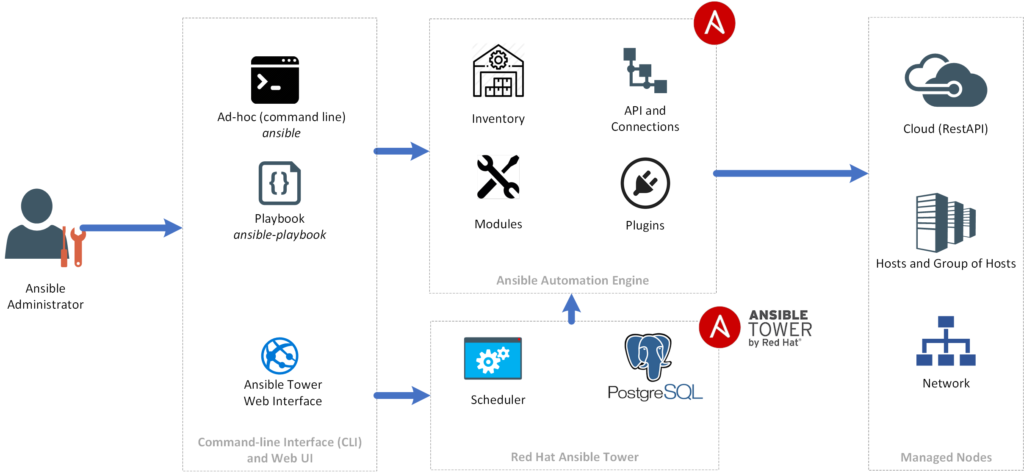Blog 6 - Ansible

What is Ansible?

Ansible is a software application that automates cross-platform computer assistance in a simple but effective way. It's primarily aimed at IT pros, who use it for application deployment, workstation and server upgrades, cloud provisioning, configuration management, intra-service orchestration, and practically anything else a systems administrator performs on a weekly or daily basis. Ansible is simple to set up since it doesn't require any agent software and doesn't require any additional security architecture.
What is an Ansible Playbook?
Ansible Playbooks provide a simple configuration management and multi-machine deployment method that is repeatable, reusable, and well-suited to delivering complicated applications. If you need to run an Ansible job many times, create a playbook and keep it under source control. The playbook may then be used to push out fresh configuration or confirm remote system settings. Many relevant strategies are demonstrated in the playbooks in the ansible-examples repository. While reading the material, you might wish to keep an eye on these on a separate tab.

What are the advantages of Ansible?
It doesn't have any agents. On your server nodes, you do not need to install any additional software. This keeps the installation clean while also guaranteeing that our software isn't conflicted with. It's simple to read and edit a playbook. They are generally written in YAML, which gives them a significant edge over competing alternatives like Puppet. It's developed in Python, a popular programming language that our developers are acquainted with, making it simple to modify. It is also well-liked and popular since it is open-source.
Ansible was created in Python, as opposed to rival alternatives written in languages like Ruby. As a result, getting it up and running is simpler, as Python libraries are included by default with most Linux systems. Engineers and system administrators are more likely to know Python than Ruby. However, Ansible modules that enhance the tool's capabilities may be built in any language as long as the data is returned in JSON format.
